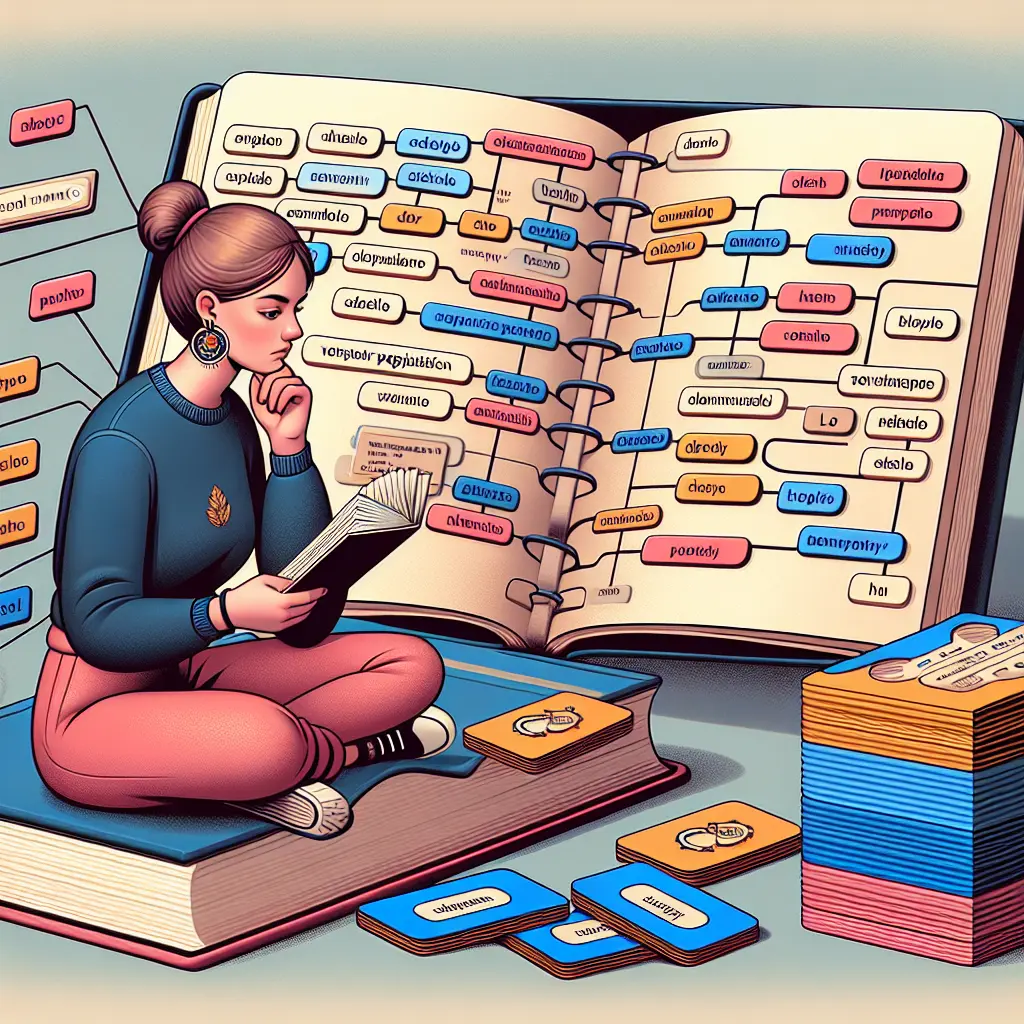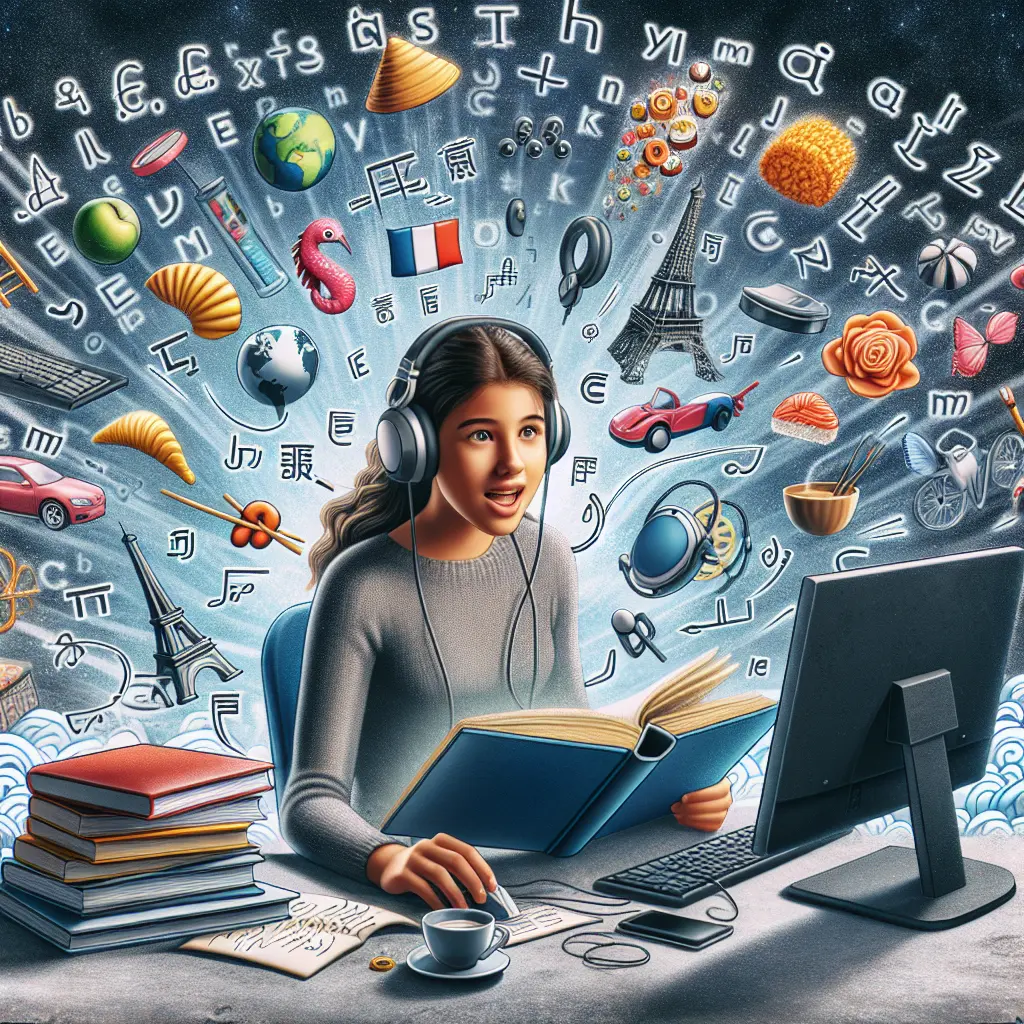In the realm of language learning, mastering vocabulary is a cornerstone for achieving fluency and effective communication. Spaced repetition techniques have emerged as a revolutionary method to enhance vocabulary skills by optimizing how we retain and recall new words. This approach is more than just a trend; it’s a scientifically backed method leveraging memory techniques to maximize vocabulary retention and mastery.
The concept of spaced repetition capitalizes on the brain's natural forgetting curve, providing a sustainable way to improve vocabulary. By strategically spacing out review sessions, learners can engage in effective vocabulary study without the stress and inefficiency often associated with traditional rote memorization.
Spaced repetition systems (SRS) are designed to present information at intervals that align with the brain's optimal retention periods. This method ensures that learners encounter new vocabulary words at increasing intervals, reinforcing memory just as it starts to fade. Studies in cognitive psychology have shown that this method significantly enhances vocabulary retention compared to cramming or less structured review methods (Ebbinghaus' Forgetting Curve Study).
Moreover, the integration of digital tools such as spaced repetition apps and flashcards has made this method more accessible. These platforms offer interactive experiences that cater to various skill levels, making vocabulary acquisition not only effective but also engaging.
As we delve into how technology shapes vocabulary learning, it’s worth noting the insights from industry leaders on AI's role in transforming traditional practices. The Chief Technology Officer at Atlassian recently discussed AI's potential in reshaping developer roles, highlighting how AI-driven applications can similarly revolutionize language acquisition (The Role of AI in Education). By automating personalized learning schedules, AI can tailor spaced repetition systems to individual needs, optimizing the learning process.
Real-World Applications and Insights
Interestingly, companies like Cinder are encountering engineering applicants from North Korea, showcasing a global talent pool that can drive innovation in educational technology (Cinder Tech News, 2024). This global perspective is crucial as it brings diverse insights into how spaced repetition techniques can be applied across different languages and cultures, further enriching vocabulary learning methodologies.
In her latest book, Adrienne Maree Brown explores how empathy and understanding can transform relationships. This concept is mirrored in language learning, where mastering vocabulary through spaced repetition not only facilitates communication but also fosters deeper connections across cultures. By building a robust vocabulary, learners can express themselves more authentically and understand others more profoundly.
For those looking to incorporate spaced repetition into their language acquisition strategies, consider these practical steps:
Choose the Right Tools: Utilize spaced repetition apps like Anki or Quizlet, which offer customizable flashcards and algorithms that adjust to your learning pace.
Set Clear Goals: Define what vocabulary mastery means for you—whether it's preparing for an exam or enhancing conversational skills—and tailor your practice sessions accordingly.
Integrate Diverse Content: Use a mix of media (e.g., books, podcasts) to expose yourself to new words in context, reinforcing your understanding and retention.
Case Study: Venture Capital's Influence on EdTech Innovations
The venture capital landscape plays a pivotal role in fostering innovations that enhance educational experiences (VentureBeat, 2024). By investing in startups focusing on spaced repetition technologies, VCs drive the development of tools that make vocabulary learning more efficient and accessible.
The advantages of spaced repetition extend beyond immediate language goals. This method cultivates a mindset of continuous improvement and lifelong learning. For example, automated accessibility testing in WordPress highlights how systematic approaches can transform complex tasks (WordPress Accessibility Podcast, 2024). Similarly, spaced repetition encourages systematic learning habits that are beneficial across various disciplines.
The future of language learning is intertwined with AI advancements. Devon AI Software Engineer’s ability to autonomously build and deploy applications exemplifies how AI can streamline complex processes (Devon AI News, 2024). In vocabulary acquisition, AI can provide dynamic feedback and adapt learning paths in real-time, further enhancing the efficacy of spaced repetition systems.
As you embark on your journey to enhance vocabulary skills, integrating spaced repetition techniques can be transformative. This method not only supports vocabulary retention but also builds a foundation for long-term mastery. By embracing these strategies and leveraging technology's potential, you position yourself for success in any linguistic endeavor.
In conclusion, mastering vocabulary through spaced repetition is not just about learning new words—it’s about embracing a methodical approach that enriches your cognitive abilities and opens doors to global communication. Whether you’re a professional looking to refine your skills or an enthusiast eager to explore new languages, the benefits of this technique are profound and far-reaching.









Leave a Comment